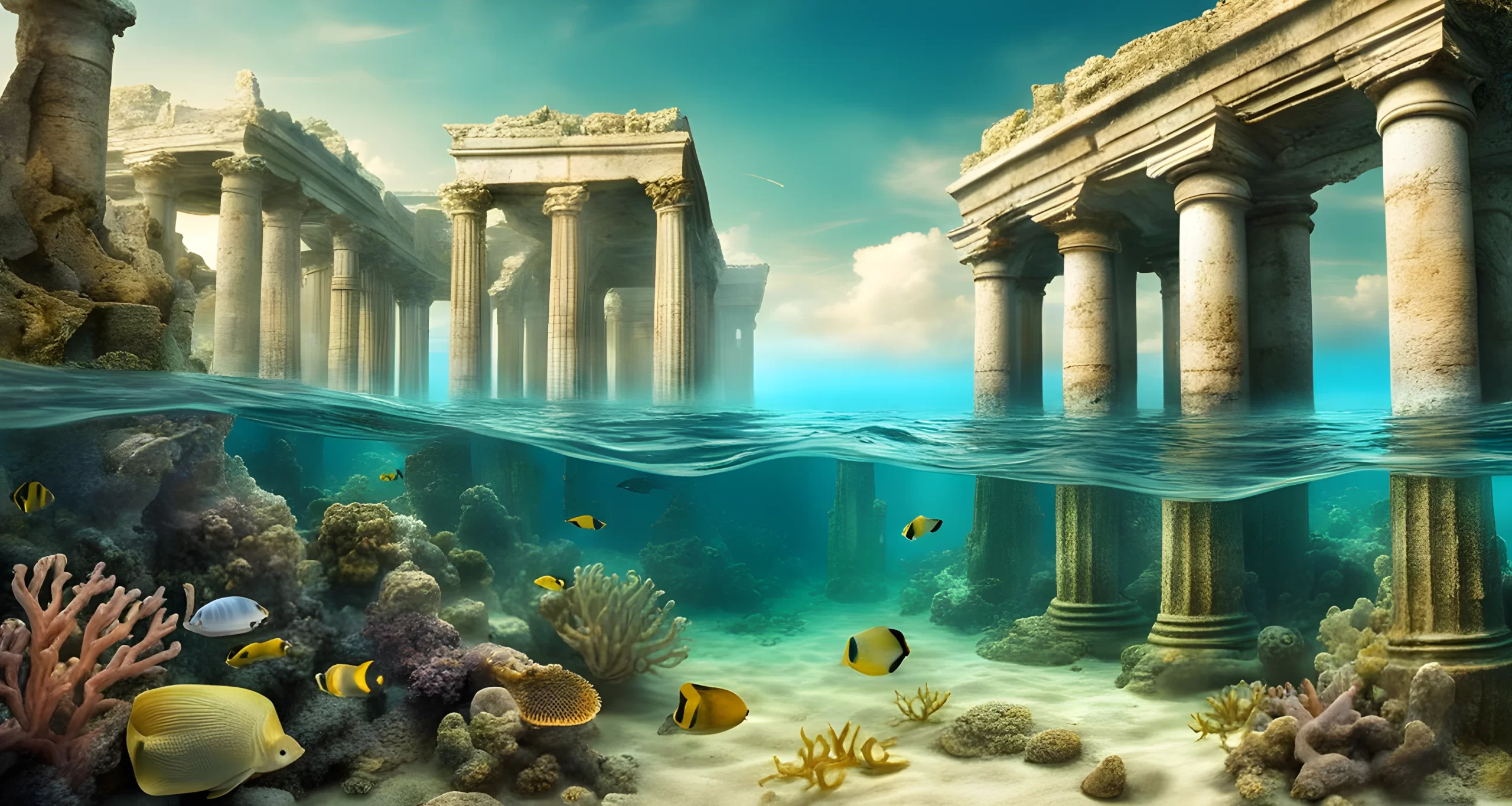Introduction
The legendary island of Atlantis has captured the human imagination for centuries, its origins rooted in ancient Greek philosophy. According to Plato, Atlantis was a powerful kingdom that existed approximately 9,000 years before his time, around 9600 BC.
The story of Atlantis has sparked countless theories and discussions, with some believing it to be a mere myth and others convinced of its historical existence. The mystery surrounding Atlantis has led to numerous expeditions and research efforts aimed at uncovering the truth behind this enigmatic civilization.
Some modern interpretations of Atlantis have linked it to other historical mysteries, such as the Templar Knights Grail and their connection to ancient artifacts and lost civilizations. These theories have added layers of intrigue to the already captivating tale of Atlantis.
In this article, we will explore the legend of Atlantis, examine historical accounts and modern interpretations, delve into scientific evidence (or lack thereof), address controversies surrounding its existence, and ultimately determine whether Atlantis is a mere myth or a buried memory waiting to be unearthed.
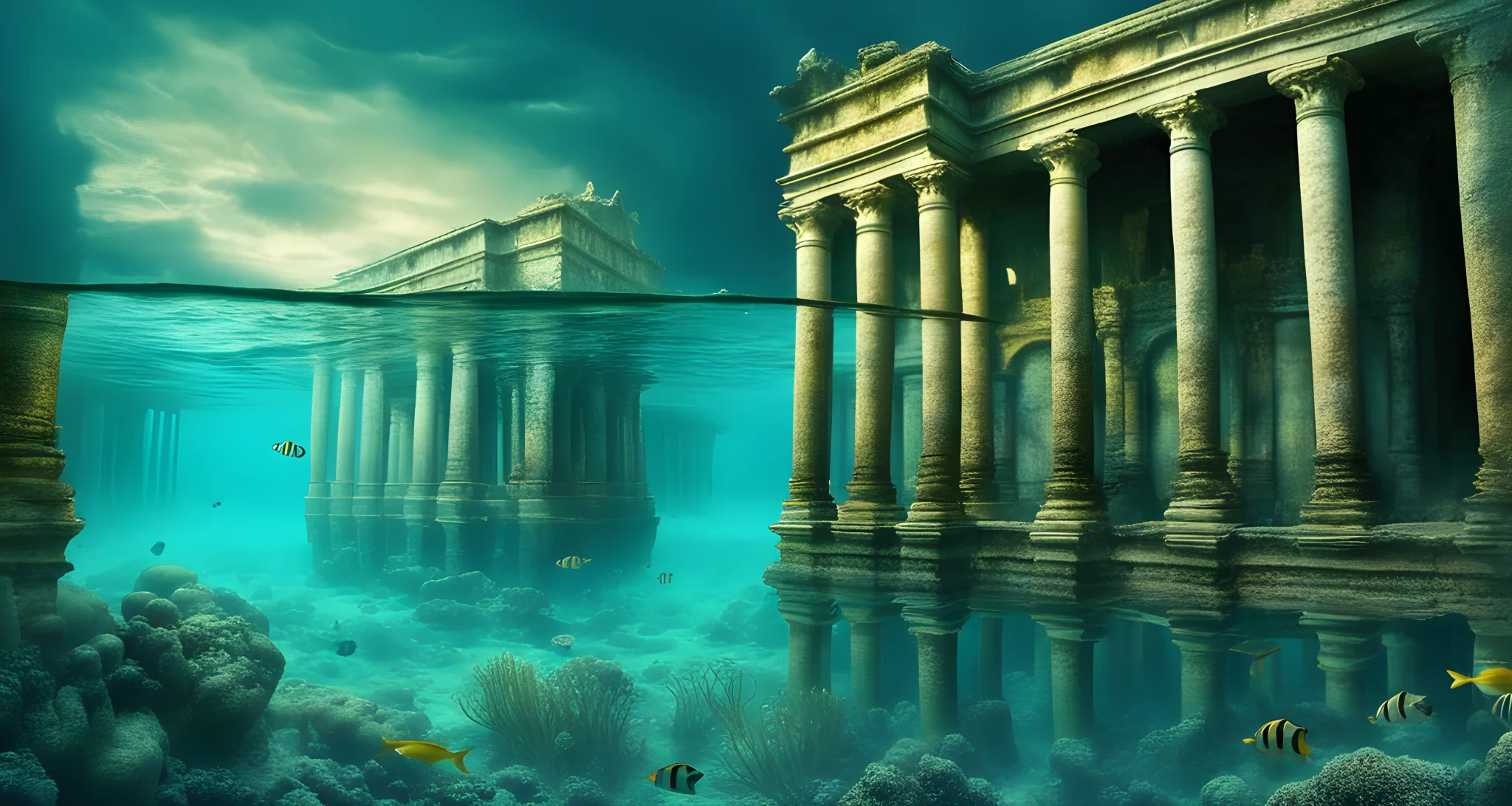
The Legend of Atlantis
Plato’s dialogues Timaeus and Critias present the story of Atlantis as a highly advanced civilization that was said to have been destroyed in a catastrophic event, resulting in its sinking into the sea. The myth of Atlantis is deeply intertwined with the philosophical ideas of Plato, who used it as a vehicle to discuss themes such as the ideal society, the nature of justice, and the relationship between the divine and human.
- According to Plato’s account, Atlantis was a powerful and technologically advanced civilization located beyond the "Pillars of Hercules" (modern-day Strait of Gibraltar).
- The story goes that after a failed attempt to invade Athens, Atlantis was struck by a natural disaster and subsequently submerged beneath the ocean.
- Many modern interpretations of the Atlantis story have drawn parallels to real historical events and ancient civilizations.
- Some historians and archaeologists continue to search for physical evidence of Atlantis, while others view it as purely a fictional tale with no basis in reality.
For more information on ancient mysteries and unexplained phenomena, check out our article on the Pentagon UFO Program – it’s a fascinating read!
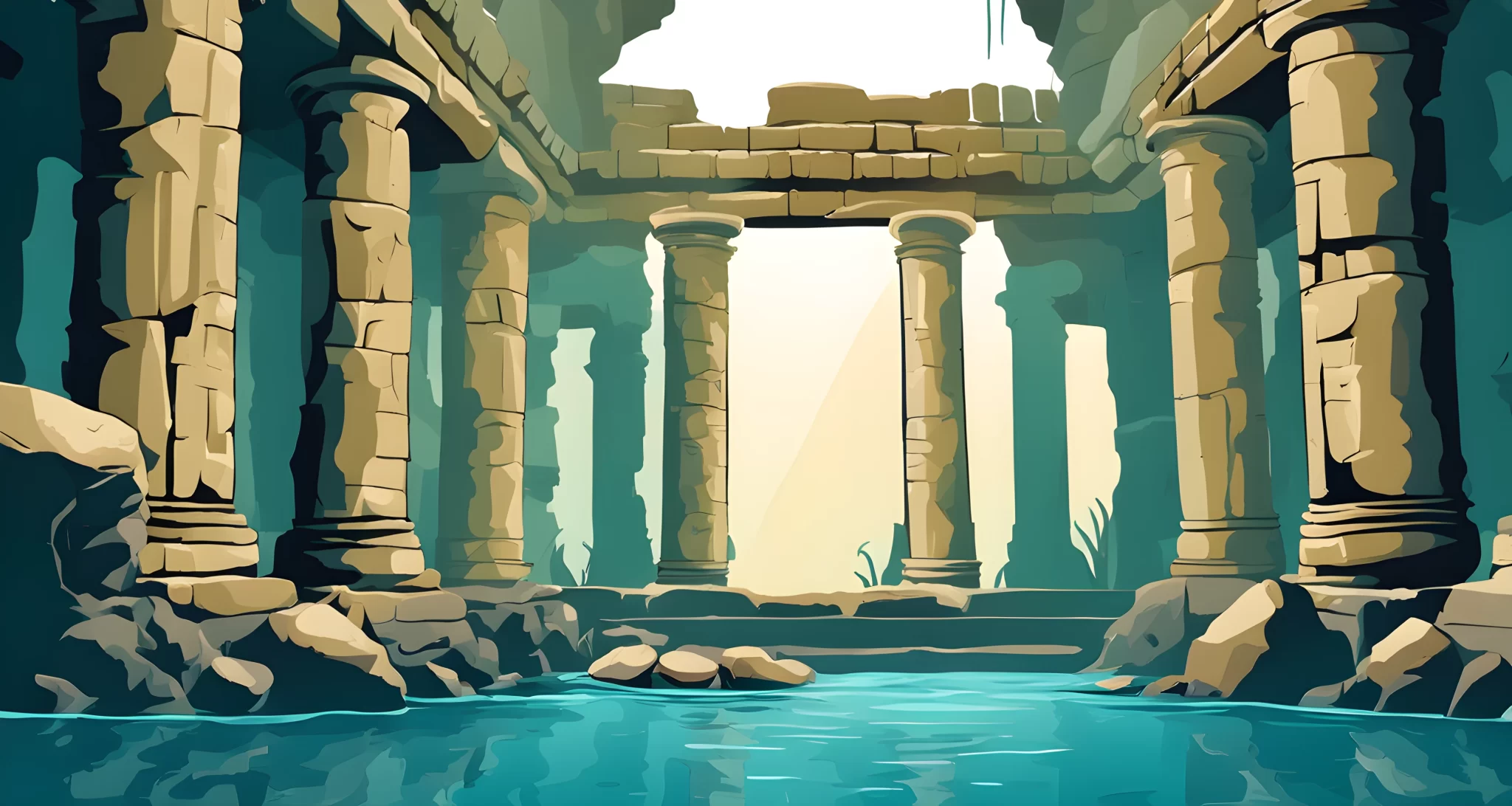
Historical Accounts
Historical accounts of Atlantis can be traced back to the ancient Greek philosopher Plato, who first mentioned the lost city in his dialogues "Timaeus" and "Critias." However, the story of Atlantis truly gained prominence through the account of Solon, an Athenian statesman who learned about the city from the priests in Egypt.
According to the priests, Atlantis was a place where the rulers were descended from the god Poseidon and were known for their wisdom, wealth, and advanced technology. However, the people of Atlantis eventually became corrupt and greedy, leading to their downfall. This narrative of a great civilization brought low by its own hubris has captured the imagination of people for centuries.
The historical accounts of Atlantis have sparked numerous theories and interpretations, leading to a wide range of beliefs about its existence. Some view it as a cautionary tale, while others search for evidence of its actual existence.
To this day, the debate over whether Atlantis was a real place or simply a myth continues to fascinate historians and scholars alike. For further exploration on myths and realities, check out this intriguing article on Myth FEMA Camps Reality.
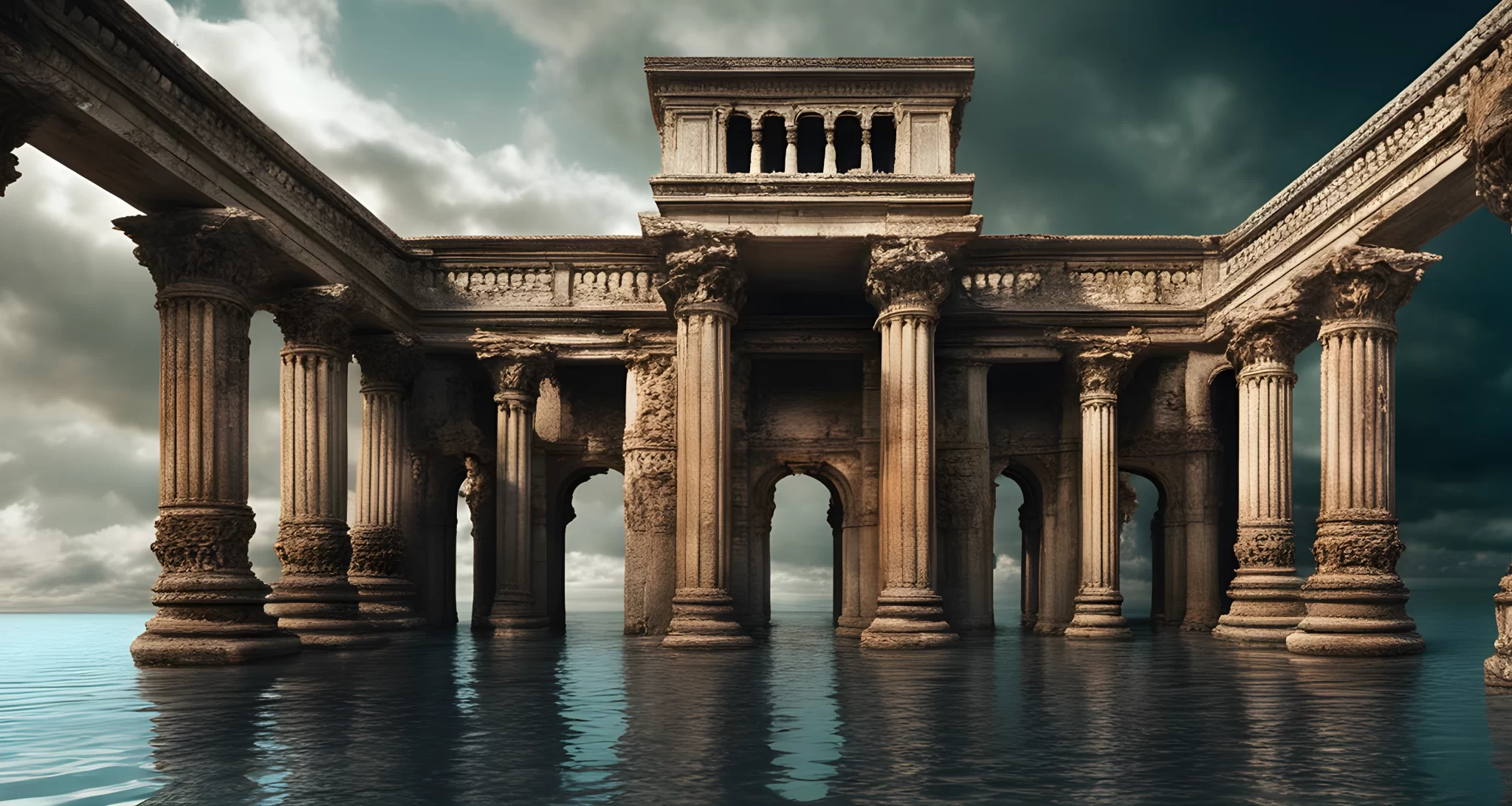
Modern Interpretations
In modern times, the legend of Atlantis has captured the imagination of many, leading to various interpretations and theories. The enduring fascination with the lost city has prompted numerous discussions and explorations. Here are some modern interpretations of the Atlantis myth:
-
Literary Inspiration: Many authors and filmmakers have drawn inspiration from the Atlantis legend, incorporating it into their works of fiction. From Jules Verne’s "Journey to the Center of the Earth" to Disney’s animated film "Atlantis: The Lost Empire," the myth has been reimagined in countless ways.
-
New Age Beliefs: Some New Age and esoteric movements have adopted the Atlantis story as part of their spiritual beliefs. They view Atlantis as a highly advanced civilization with mystical knowledge that was lost to history.
-
Pseudoscientific Theories: Certain fringe scientists and conspiracy theorists have proposed alternative theories about the existence and location of Atlantis, often without credible evidence to support their claims.
-
Pop Culture References: The Atlantis myth has permeated popular culture, appearing in video games, TV shows, and even theme park attractions.
These modern interpretations reflect the enduring appeal and adaptability of the Atlantis legend in contemporary society. This ongoing fascination with lost civilizations and mysterious lands continues to captivate audiences worldwide.
To learn more about how myths and legends persist in modern times, check out Ongoing Flat Earth Belief for insights into another enduring myth that continues to captivate individuals despite scientific evidence.
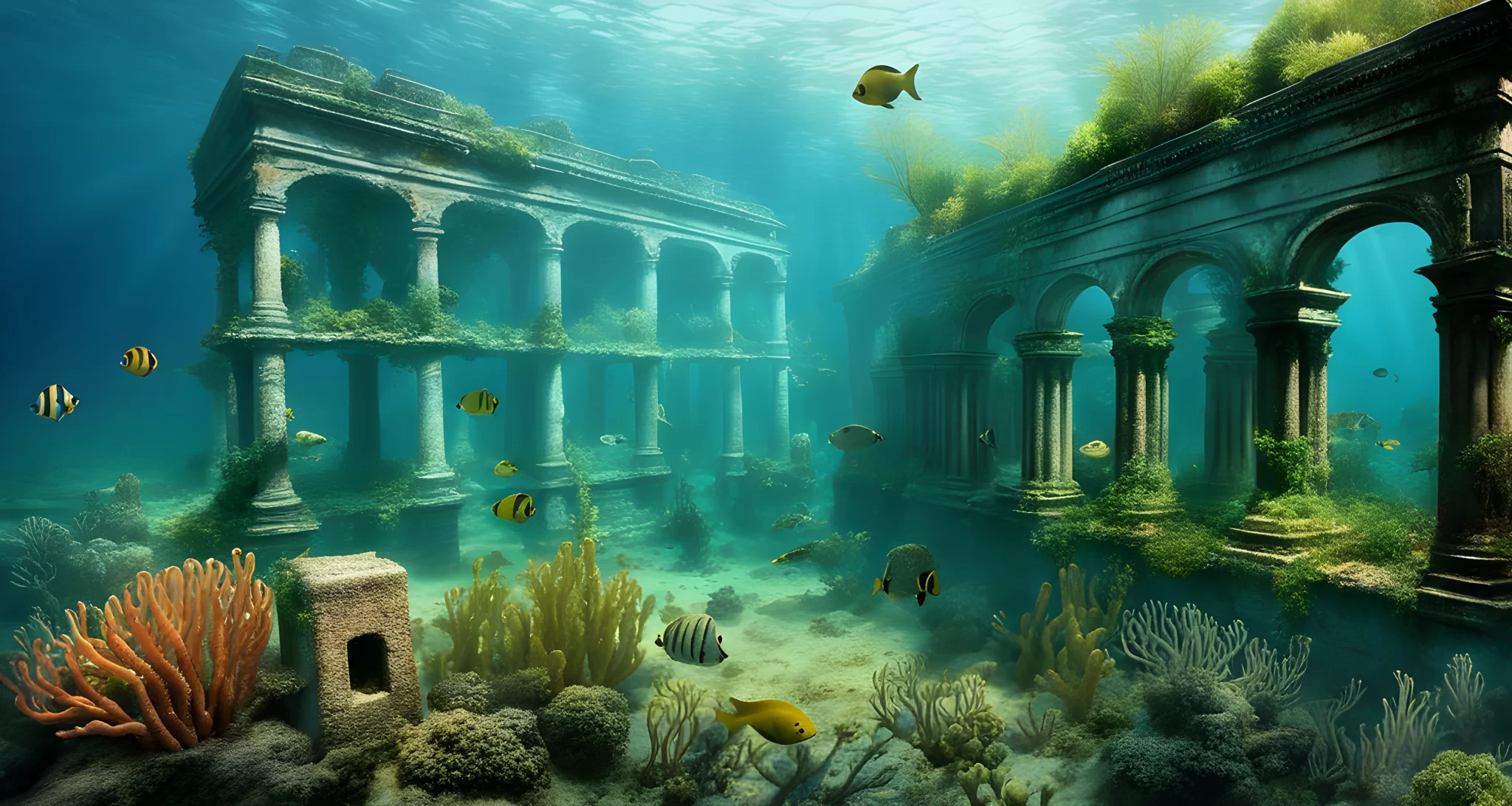
Scientific Evidence
Many have sought scientific evidence to support the existence of Atlantis. Over the centuries, there have been numerous expeditions and research studies aimed at uncovering proof of the lost city. Some of the most compelling scientific evidence includes:
- Geological formations: Some researchers believe that certain geological formations, such as the underwater structures near Bimini, could be remnants of Atlantis.
- Advanced ancient technology: Proponents of the Atlantis theory point to advanced ancient technology described in historical accounts as evidence of a highly sophisticated civilization.
- Underwater archaeology: Ongoing efforts in underwater archaeology have uncovered ancient ruins and artifacts in various parts of the world, leading some to speculate that these findings could be linked to Atlantis.
Despite these findings, controversies and debates among scholars and researchers persist. Skeptics argue that there is still no concrete scientific evidence to conclusively prove the existence of Atlantis.
For more information on controversial historical events, check out our article on Phoenix Airspace UFO for another intriguing mystery that has puzzled researchers for decades.
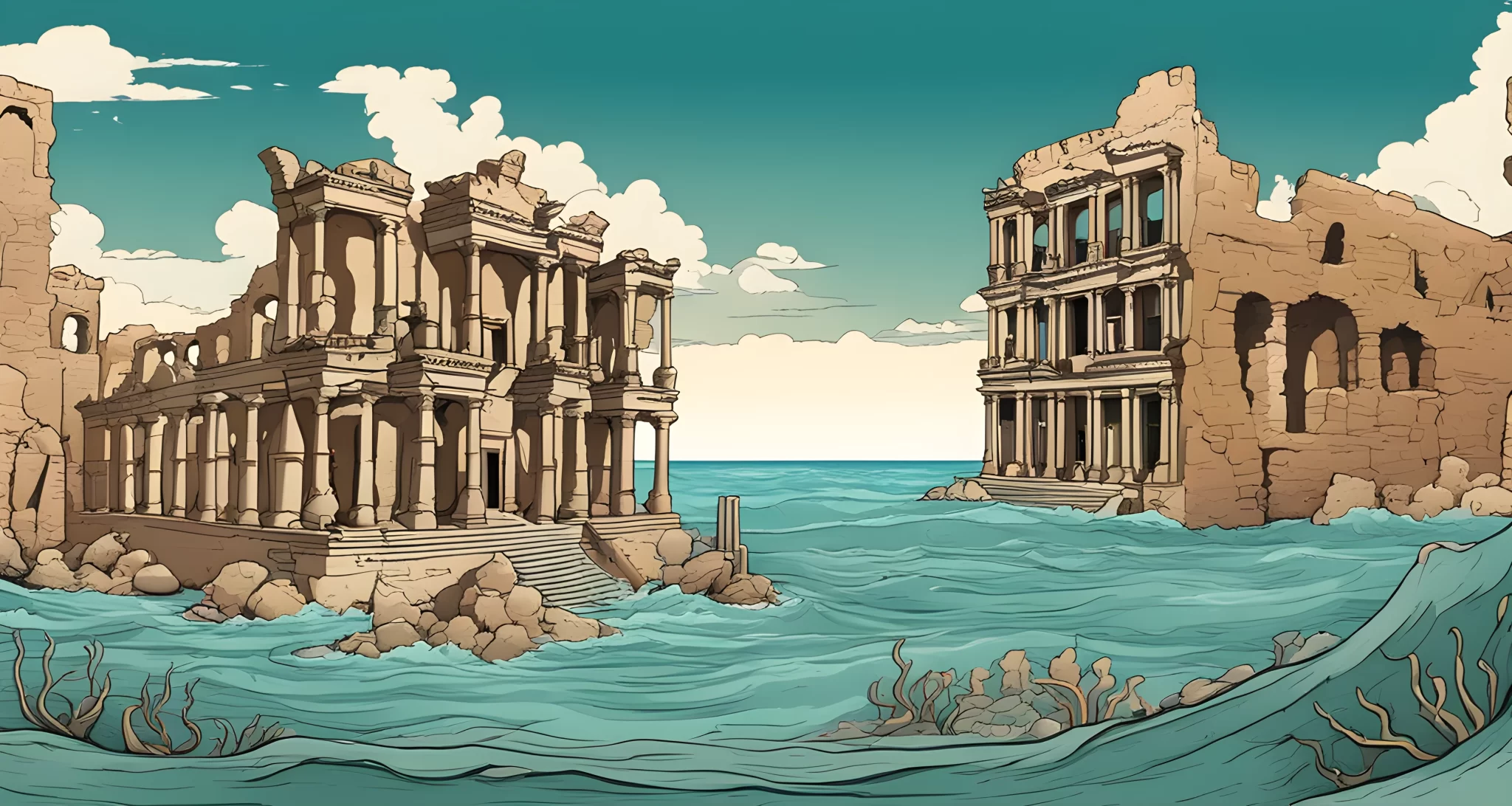
Controversies
The controversy surrounding the existence of Atlantis has been a topic of heated debate for centuries. Here are some key points to consider:
- Santorini Connection: Some believe that the island of Santorini, which experienced a catastrophic volcanic eruption around 1600 BC, could be the inspiration for the Atlantis story. This theory suggests that the destruction of Santorini may have influenced the Atlantis legend.
- Allegorical Interpretation: On the other hand, some argue that the story of Atlantis is purely allegorical, used by Plato to convey his philosophical ideas. They suggest that Atlantis may not have been a real place, but rather a symbolic representation of a utopian society or a cautionary tale about human hubris.
- Continued Fascination: The search for Atlantis and the quest to unravel its mysteries continue to captivate the imagination of people around the world. Despite the lack of concrete evidence, numerous expeditions and studies continue in an attempt to locate the lost city.
The controversies surrounding Atlantis add to its mystique and allure, fueling ongoing interest and speculation about this enigmatic legend.
For more information on unsolved mysteries, you can check out our article on Unresolved JFK assassination.
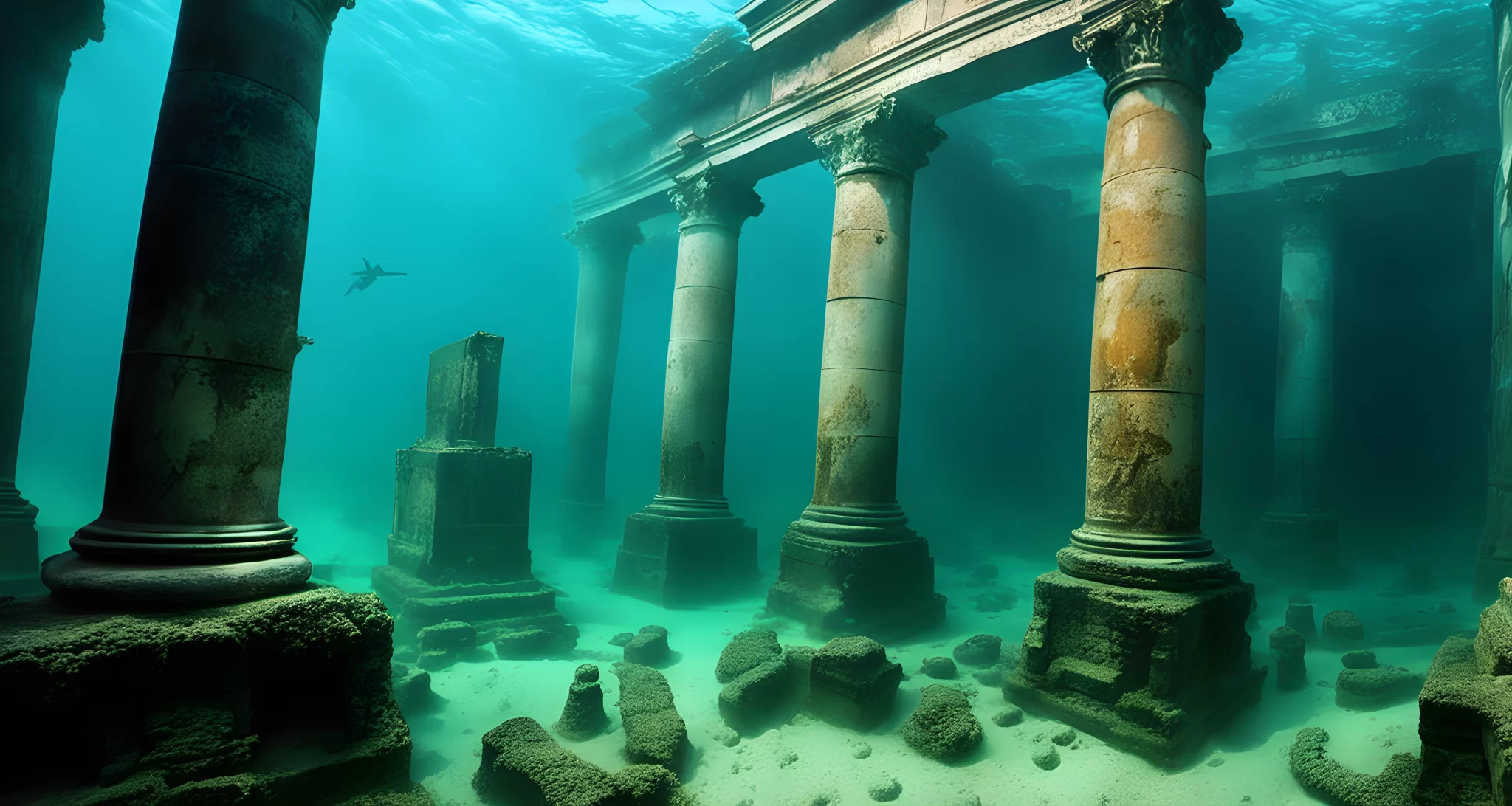
Conclusion
Despite the lack of concrete evidence, the legend of Atlantis remains a subject of fascination and intrigue, inspiring literature, art, film, and popular culture. Whether Atlantis was a real place or a symbolic creation, its enduring legacy reflects the universal human desire for knowledge, discovery, and the pursuit of truth. The mystery surrounding Atlantis has led to numerous historical accounts and modern interpretations, each adding to the allure of this mythical city. While some scientists have attempted to find scientific evidence to support the existence of Atlantis, controversies still abound.
The enduring appeal of Atlantis lies in its ability to capture the imagination and curiosity of people across generations. The idea of a lost civilization buried beneath the sea continues to captivate storytellers and researchers alike. Even though no definitive proof has been found, the legend lives on as a symbol of human ambition and the quest for understanding.
As with any enduring mystery, the story of Atlantis begs the question: is it myth or memory? While we may never know for certain, its impact on our culture is undeniable. To learn more about the power of myths and legends in shaping beliefs and behaviors, check out Reality or Myth for an insightful exploration of brainwashing techniques.
FAQ
What is the legend of atlantis?
The legendary island of atlantis is a powerful kingdom that is said to have existed approximately 9,000 years before plato’s time. it is described as a highly advanced civilization that was destroyed in a catastrophic event, resulting in its sinking into the sea.
What philosophical ideas is the myth of atlantis intertwined with?
The myth of atlantis is deeply intertwined with the philosophical ideas of plato, who used it as a vehicle to discuss themes such as the ideal society, the nature of justice, and the relationship between the divine and human.
Are there similar myths of lost cities in other ancient cultures?
Yes, other ancient cultures also had similar myths of lost cities. for example, the welsh legend of avalon and the portuguese legend of antilia (isle of seven cities) share similarities with the atlantis story.
What is the historical significance of the legend of atlantis?
While the historical existence of atlantis is debated, its legend has captivated human imagination for centuries and has been used as a philosophical tool to explore themes of a perfect society, justice, and the consequences of human actions.
